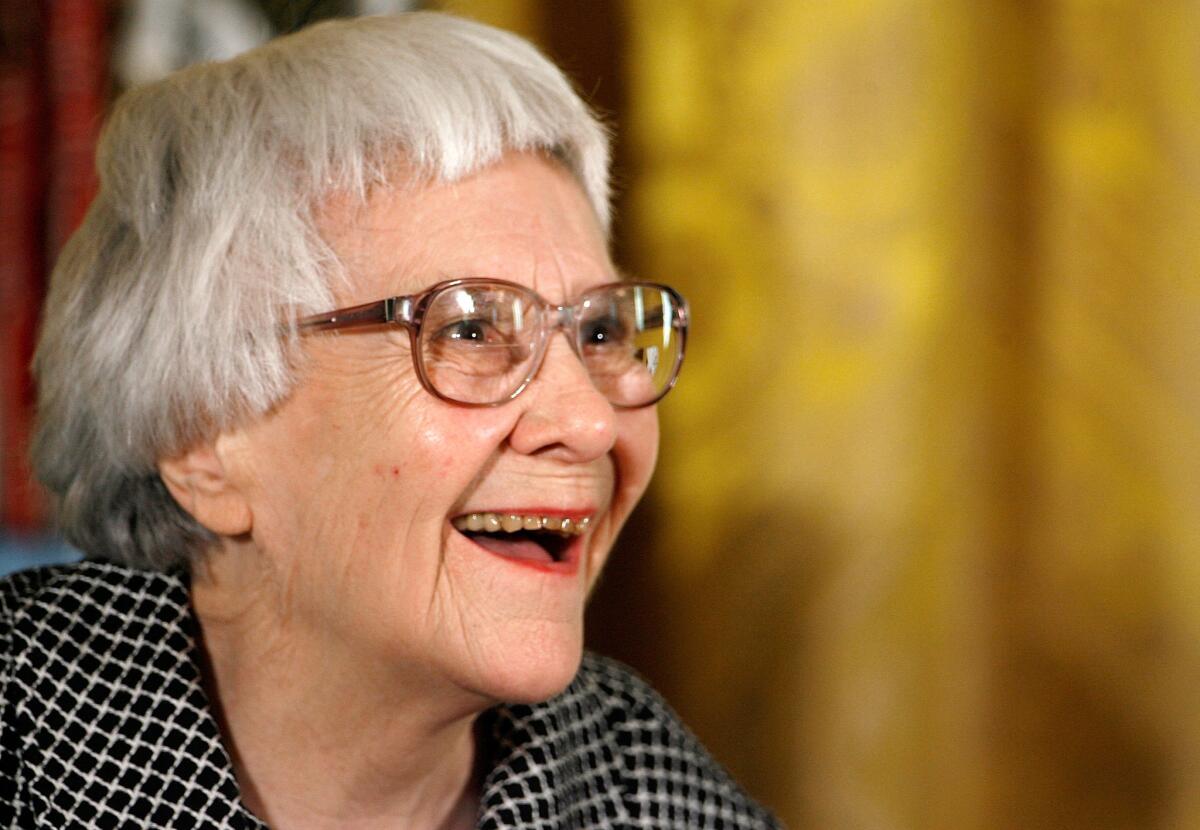Harper Lee: What’s wrong with a one-hit wonder?

- Share via
I’m not sure what to make of Casey N. Cep’s piece about Harper Lee’s abandoned true-crime book over at the New Yorker’s Page Turner blog.
On the one hand, it tells a fascinating story of a potential mass murderer, who was protected by his status as a preacher. On the other, it suggests something disquieting about Lee in the decades after “To Kill a Mockingbird.”
In the late 1970s, Cep writes, Lee moved to Alexander City, Ala., to research a novel called “The Reverend” that had at its center the figure of Willie Maxwell, a pastor shot to death at his stepdaughter’s funeral. (He was a suspect in her murder.) Maxwell, it is said, killed five members of his family for the insurance; his lawyer, Tom Radney, “convinced” Lee to write about them. Now, nearly 40 years later, Radney’s heirs are hopeful that with the author’s reemergence, her book about Maxwell might also eventually appear.
That this seems a pipe dream should go without saying; according to Cap, all that exists of “The Reverend” is a brief opening chapter: four typed pages, six paragraphs, 1,100 words. That’s a morning’s work for some writers, but then, Lee has never just been some writer, which is, perhaps, the whole idea.
“I still talk to Nelle twice a year, and every time we talk, she says she’s still working on it,” Radney told a reporter as late as 1997. Cep follows this with another, more recent, quote from Radney’s widow: “He’d call her and she’d say I’m just about finished with the draft, or it’s just going to be perfect, or I’ll send it to the publishers tomorrow. … He even went up to New York to get his files, and she told him it was headed to the publishers.”
Such a statement is compelling for a couple of reasons, not least the insight it offers into Lee’s process, or her avoidance of that process: take your pick. It brings to mind the central conflict of Charlie Kaufman’s movie “Adaptation,” which portrays, among other things, a screenwriter’s desperation not to write.
Indeed, Kaufman’s film remains perhaps the finest on-screen evocation of the peculiar pathology of the writer — unhappy when working, more unhappy when not. Could it be that Lee suffered from a variation of this syndrome? The saga of “The Reverend” suggests that perhaps she did.
This, in turn, brings back the questions raised by “Go Set a Watchman,” the early manuscript — billed as a prequel, of sorts, to “Mockingbird” — scheduled to be published in July. No need to air out, once more, my reservations about the novel, which was the subject of a recent investigation, now closed, by the state of Alabama over allegations of elder abuse.
No, what’s more interesting to me now is Lee’s apparent inability to gain traction on another project in the decades after “To Kill a Mockingbird” appeared. We know she helped Truman Capote with “In Cold Blood,” his 1966 “nonfiction novel,” but after that, there isn’t much.
To call “The Reverend” an abandoned book seems a stretch, given how little of it was actually written — but more to the point is another issue: Why do we need it to be such? What is it about Lee, about our relationship to such a writer, that insists she should have wanted more?
The history of literature is littered with one-hit wonders: Anna Sewell, Margaret Mitchell, John Kennedy Toole. We don’t require anything additional from them; certainly, we can all name other writers (Hubert Selby, Frederick Exley) who probably should have stopped after their first book.
When it comes to Lee, however, we have different expectations, expectations that seem impossible to fulfill. I am reminded of Shalom Auslander, who in his novel “Hope: A Tragedy” imagines an elderly Anne Frank who survived the Holocaust, only to be crippled by the success of her diary, which hangs over her like a kind of curse.
“Thirty-two million copies,” she declares, “that’s nothing to sneeze at! I will leave this attic when I finish this book, and not one moment sooner! Not one moment sooner! I am a writer, … do you hear me! A writer!”
I don’t mean to conflate Lee with Frank, except in terms of the ubiquity of their books. And yet, how does one live up to such a debut? The lesson of “The Reverend,” as well as Lee’s career, may have to do with the intractability of such a question, which says more about our demands as readers than it does about the writer or her work.
Twitter: @davidulin
More to Read
Sign up for our Book Club newsletter
Get the latest news, events and more from the Los Angeles Times Book Club, and help us get L.A. reading and talking.
You may occasionally receive promotional content from the Los Angeles Times.








